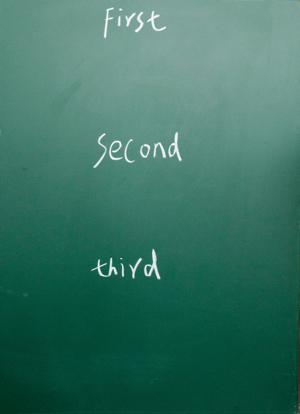Auditory Processing Disorder (APD), also known as central auditory processing disorder (CAPD), is a learning difference that makes it difficult for kids to process what they hear. While APD isn’t a hearing problem, nor does it have anything to do with intelligence, APD does make it difficult to know what people are saying.
Kids with APD experience an interference between what they hear and what their brain interprets as speech. In a classroom setting, APD can inhibit one’s ability to grasp what’s being taught or to collaborate with their fellow students. What distinguishes APD from a difficulty hearing or a struggle to follow along in class is that APD refers to how the central nervous system (CNS) uses auditory information. This means that students with APD experience word scrambling and aren’t able to pick up on the subtle differences of various words. For example, kids with APD may not hear the difference between cat, that, and bat.
Symptoms of Auditory Processing Disorder
- Struggling to notice the difference between separate sounds
- Struggling to focus on a specific sound in a noisy setting
- Limited auditory recall of sounds and words
- Difficulty following spoken directions
- Difficulty following a conversation and delayed responses
These symptoms can be present both inside and outside of the classroom. In addition to the above symptoms, children with APD may behave as if they’re experiencing hearing loss.
Ways to Help Your Child With Auditory Processing Disorder
Treatment of APD is highly individualized and should be overseen by a therapeutic specialist or doctor. If your child has been diagnosed with APD these tricks can help them feel empowered and in control both in and outside the classroom:
- Assistive technology, like voice to text communication or noise cancelling headphones with a mic link to the teacher will make sure they’re able to follow a speaker more closely
- Putting students with APD closer to the teacher makes it easier for them to tune into what’s being taught
- Giving kids with APD a heads up with visual cues or key words to let them know that something’s come up they need to pay special attention to
- Emphasizing transition words like first or then to help them to better sequence events
HOW Eagle Hill Implements Specialized Learning
The classrooms at Eagle Hill School host accommodations for students diagnosed with APD – including FM systems in every classroom for speech clarity – and the faculty leverages individualized teaching strategies for every student. Recognizing that inclusivity is key to encouraging a child’s confidence, EHS fosters a community where students can achieve their maximum potential, at a pace they’re comfortable with, surrounded by friends who are rooting for their success.
ABOUT EAGLE HILL SCHOOL
Eagle Hill School is a private school for students with learning differences located in Greenwich, Connecticut. Their academic program is designed to help students struggling with auditory processing disorder, and other differences such as dyscalculia, dyslexia, ADHD, executive functioning disorder, and dysgraphia. Specialized remedial learning programs are taught by experienced teachers who help students navigate through learning challenges, preparing them for bright futures ahead.
Other blogs you may be interested in:
How Children with Learning Differences Can Benefit from Artistic Expression
Choosing the Best School for Children with ADHD: 5 Factors to Consider
Resources:
Caroline Miller (2021). Help for Kids With Auditory Processing Disorder. From https://childmind.org/article/help-for-kids-with-auditory-processing-disorder/
Understood (2021). Auditory Processing Disorder: What You Need to Know. From https://www.understood.org/en/learning-thinking-differences/child-learning-disabilities/auditory-processing-disorder/understanding-auditory-processing-disorder
Teri James Bellis, PhD, CCC-A (2021). Understanding Auditory Processing Disorders in Children. From https://www.asha.org/public/hearing/understanding-auditory-processing-disorders-in-children/
Thierry Morlet, PhD Miller (2021). Auditory Processing Disorder. From https://kidshealth.org/en/parents/central-auditory.html


